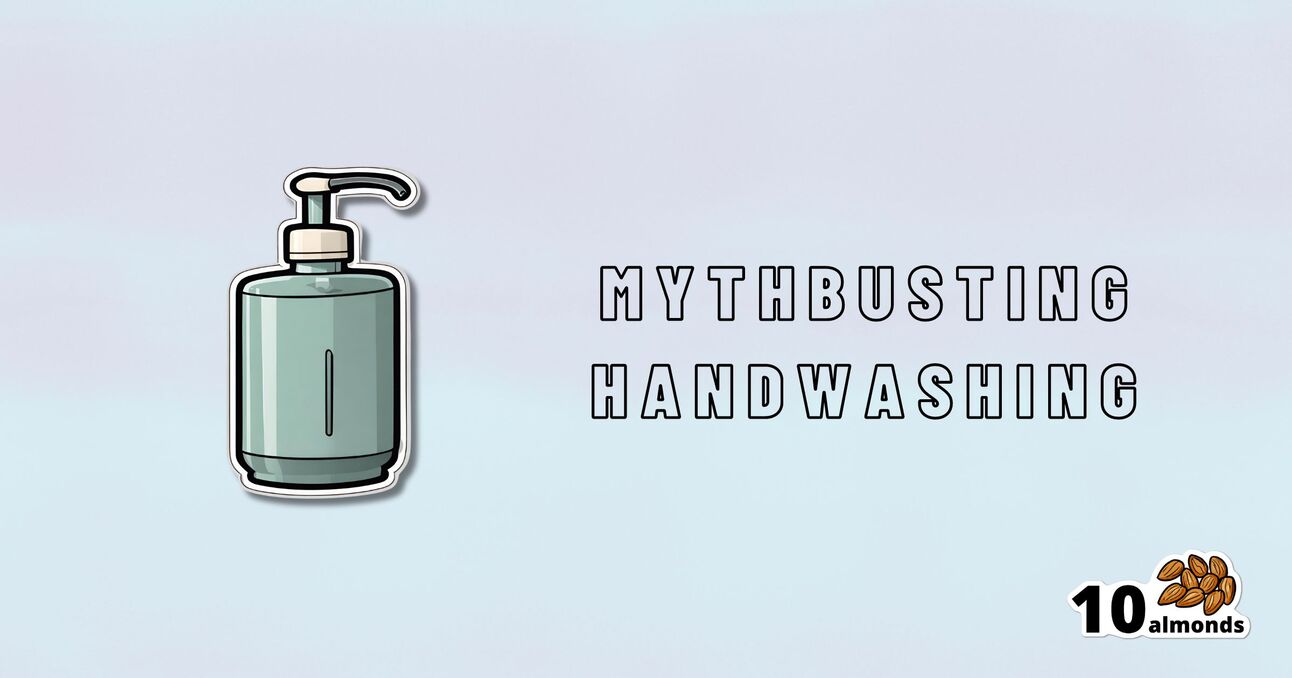The Truth About Handwashing
Handwashing habits exposed: 54% overwash, yet under 80% are truthful. Soap beats sanitizer, antibacterial claims debunked – all wrapped in science’s embrace.

Washing Our Hands Of It

In Tuesdays’s newsletter, we asked you how often you wash your hands, and got the above-depicted, below-described, set of self-reported answers:
- About 54% said “More times per day than [the other options]”
- About 38% said “Whenever using the bathroom or kitchen
- About 5% said “Once or twice per day”
- Two (2) said “Only when visibly dirty”
- Two (2) said “I prefer to just use sanitizer gel”
What does the science have to say about this?
People lie about their handwashing habits: True or False?
True and False (since some people lie and some don’t), but there’s science to this too. Here’s a great study from 2021 that used various levels of confidentiality in questioning (i.e., there were ways of asking that made it either obvious or impossible to know who answered how), and found…
❝We analysed data of 1434 participants. In the direct questioning group 94.5% of the participants claimed to practice proper hand hygiene; in the indirect questioning group a significantly lower estimate of only 78.1% was observed.❞
Note: the abstract alone doesn’t make it clear how the anonymization worked (it is explained later in the paper), and it was noted as a limitation of the study that the participants may not have understood how it works well enough to have confidence in it, meaning that the 78.1% is probably also inflated, just not as much as the 94.5% in the direct questioning group.
Here’s a pop-science article that cites a collection of studies, finding such things as for example…
❝With the use of wireless devices to record how many people entered the restroom and used the pumps of the soap dispensers, researchers were able to collect data on almost 200,000 restroom trips over a three-month period.
The found that only 31% of men and 65% of women washed their hands with soap.❞
Source: Study: Men Wash Their Hands Much Less Often Than Women (And People Lie About Washing Their Hands)
Sanitizer gel does the job of washing one’s hands with soap: True or False?
False, though it’s still not a bad option for when soap and water aren’t available or practical. Here’s an educational article about the science of why this is so:
UCI Health | Soap vs. Hand Sanitizer
There’s also some consideration of lab results vs real-world results, because while in principle the alcohol gel is very good at killing most bacteria / inactivating most viruses, it can take up to 4 minutes of alcohol gel contact to do so, as in this study with flu viruses:
In contrast, 20 seconds of handwashing with soap will generally do the job.
Antibacterial soap is better than other soap: True or False?
False, because the main way that soap protects us is not in its antibacterial properties (although it does also destroy the surface membrane of many bacteria and for that matter viruses too, killing/inactivating them, respectively), but rather in how it causes pathogens to simply slide off during washing.
Here’s a study that found that handwashing with soap reduced disease incidence by 50–53%, and…
❝Incidence of disease did not differ significantly between households given plain soap compared with those given antibacterial soap.❞
Read more: Effect of handwashing on child health: a randomised controlled trial
Want to wash your hands more than you do?
There have been many studies into motivating people to wash their hands more (often with education and/or disgust-based shaming), but an effective method you can use for yourself at home is to simply buy more luxurious hand soap, and generally do what you can to make handwashing a more pleasant experience (taking a moment to let the water run warm is another good thing to do if that’s more comfortable for you).
Take care!
Share This Post
Learn To Grow
Sign up for weekly gardening tips, product reviews and discounts.




